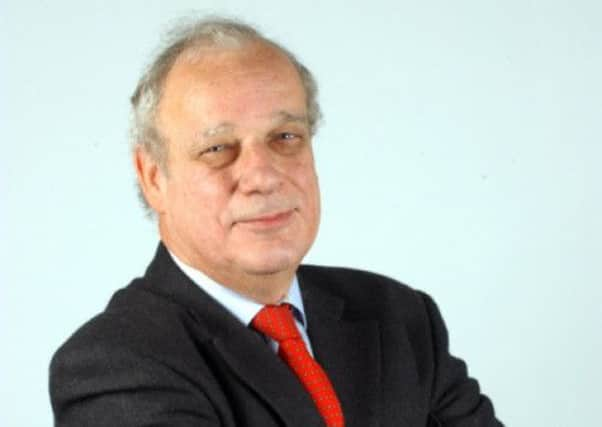Bill Jamieson: what a Yes vote means for business


But there was one question uppermost in the minds of the audience. In fact, it was raised on three occasions in the hour-long session by separate individual shareholders: what contingency plans did RBS have in the event of a Yes vote in the independence referendum? Was there a “Plan B” – and what comprised it?
RBS investors are by no means alone in their in increasing concern over what a Yes vote will mean for the Scottish companies in which they are invested. Indeed, this is a concern that is likely to spread across Scotland’s financial sector. For the moment, company directors are reluctant to make any public statement on what independence might mean for their businesses for fear of being drawn into an increasingly fierce political battle. They’re not complacent and they’re not unconcerned. But I do sense they are feart of making any public statement that would be jumped on and used as a weapon of attack.
Advertisement
Hide AdAdvertisement
Hide AdBut the question persists. What would a break-up of the UK mean for those companies based in Scotland but with operations and customers across the UK? Even more concerning, if there is no agreement on a sterling “currency union” with the rest of the UK, what might a separate currency mean for all those who have investments or pension savings managed by an institution based in Scotland?
The financial sector – ranging across insurance, tax and legal services, fund management, asset management and venture capital provision as well as banking – is a critical part of Scotland’s economy. These questions are central to its very survival.
Sir Sandy Crombie, the senior independent director at RBS, excused himself from a view on the grounds he holds a position with a government organisation (Creative Scotland) and that it would be inappropriate for him to make any observation that might be interpreted as favouring one side or another.
Ross McEwan’s reply was nothing if not diplomatic. RBS, he said, operated in 38 countries worldwide. Operating in 39 was not going to pose that much of a challenge – and it had bigger problems to face. The bank was doing some contingency planning but he was not going to be drawn on setting out answers to hypothetical outcomes. And there is a double hypothetical here: a Yes vote, and the possible adoption of a separate currency.
It was hardly surprising these answers did not satisfy some in the audience. Questions persisted on whether RBS was going to give customers guidance on what might be involved, and whether RBS had an obligation to inform them of the possible consequences. Another insisted the bank should at some stage publish its “Plan B”. Would RBS remain headquartered in Edinburgh, given that most its customers – and revenues – are based outwith Scotland? In what currency would their savings be denominated? What would be the implications for employees? What extra costs and regulation might RBS face on having to deal with two tax jurisdictions? Would its cost of capital rise?
I can well understand the reluctance of Ross McEwan and Sir Sandy Crombie to be drawn into a fiercely polarised political arena where their answers may be misinterpreted. And one would like to think that every step will be taken by the Scottish and UK governments to shield corporates and institutions from what could be a corrosive period of uncertainty.
RBS does not wish to take sides. The SNP may consider it has done well in this regard to “neutralise” RBS and discourage statements on hypothetical consequentials that might worry people. But “hypothetical consequentials” are exactly what the independence referendum is about. Even in the wake of the long-awaited white paper, there will be deep uncertainties as to what the full consequences of independence might be.
That is a huge question for all of us. But for RBS – still, for all its problems, a UK-wide business with 2,000 branches, 15.7 million customers and some 24,000 retail staff – this could become acute. If there is no clarity on what the consequentials might be, and the bank’s “Plan B” is not explained, what happens should apprehensive customers and deposits start to walk?
Advertisement
Hide AdAdvertisement
Hide AdIt is in no-one’s interest that we sleepwalk into such an outcome. But should this uncertainty persist and intensify as we approach the referendum date, RBS and the Scottish business sector generally will need to come clean on the consequences for their business. A timid, “quiet life” discretion might seem to suit for now. It cannot last.